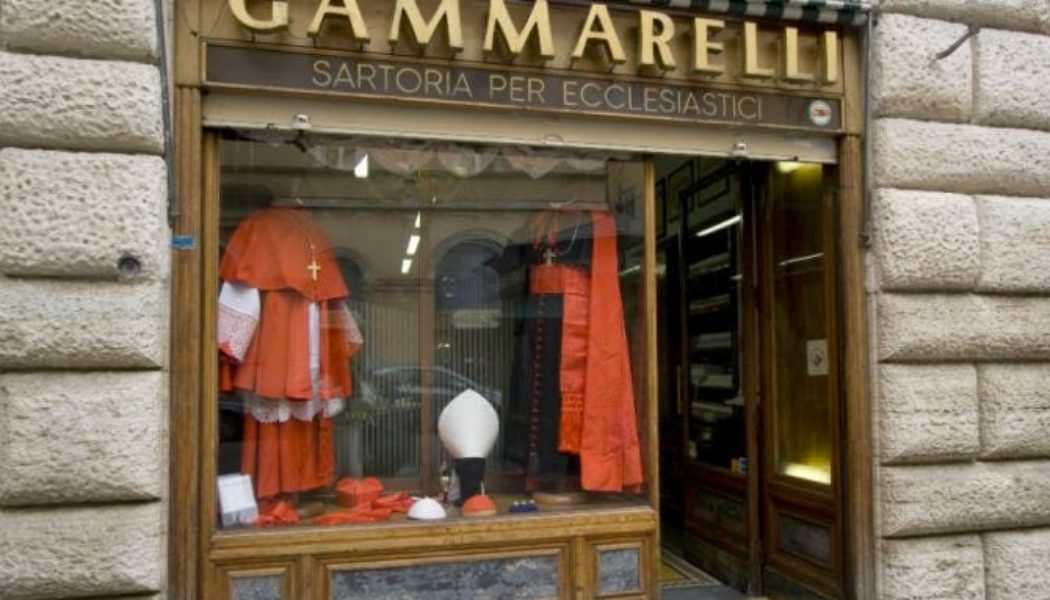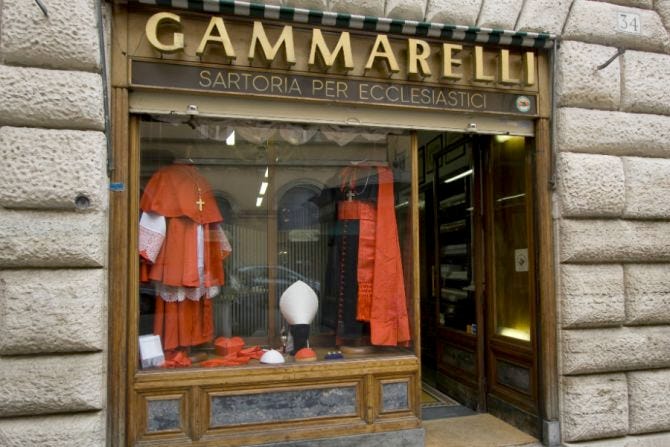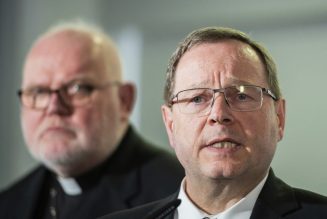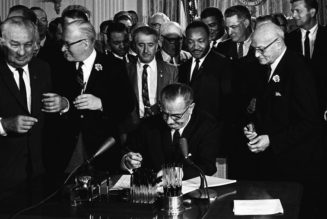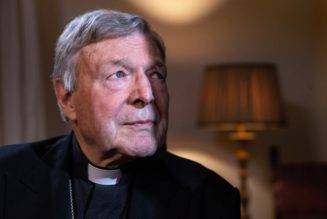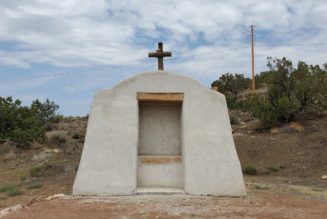Happy Friday friends,
And a happy feast of the Archangels.
This weekend is the consistory at which Pope Francis will formally create the slate of new cardinals which he announced back in July. It promises to be a weekend of pomp and pageantry in Rome.
However much it’s now en vogue for cardinals to play down the trappings of their status, it’s my experience that they get pretty into it for their big weekend. A friend of mine in Rome tells me that Gammarelli, the papal tailoring house, has had to put ordinary business on pause for weeks as it tries to fill all the custom-fitted orders in scarlet watered silk.
Good for them, I say.
I get it that these days they are more or less obliged to drop the “Your Eminence” business and tell people to “just call me cardinal.” But I think if the pope has called you up to the top team, there’s nothing wrong with wanting to suit up for your debut.
Fancy uniforms, especially ones that denote rank, get a bad rap in an era of populist egalitarianism. But I think it’s deep in our nature to want to be part of something bigger than us, to be on the team, to wear the colors. It’s an external badge of belonging and purpose, a sign of pride in a collective endeavor, not personal achievement.
It’s why, I think, people spend often silly amounts of money to wear the logo of their favorite sports club, or a university they haven’t visited in decades – if they ever went there at all.
I’m certainly not immune to these instincts. We can’t stretch to watered silk here at The Pillar, but I’ll happily spend my own money on a black satin baseball jacket with our logo on it, and not just for the tax write-off.
My wife thinks it’s cringingly vulgar when I wear Pillar stuff. But I love it. I love it because I love my job, I’m proud of what we do, and I’m grateful for all the people who read these newsletters and let us keep doing it. This is a team I want to be seen to be on. How much more so for a man who has dedicated his life to the Church and been asked to wrap himself in red to show his willingness to die for the faith?
Granted, not every cardinal lives up to that standard — and we have no shortage of horrific examples to prove it. But the fancy red suit and the courtesy titles are part of how we, and they, mark the higher standard to which they are held, and remind them of it every day. That’s a good thing and, scandals and bad actors aside, it’s something to celebrate.
So say a prayer for the new cardinals this weekend: that they live up to the scarlet, and that they can wear it without shame before the faithful, and before the Lord.
The News
The Diocese of Steubenville’s Bishop Jeffrey Monforton is leaving to become auxiliary bishop of Detroit, the Holy See announced Thursday.
It is highly unusual, though not unprecedented, for a diocesan bishop to become an auxiliary somewhere else.
And he is the subject of two separate complaints made against him under the norms of Vos estis lux mundi — I say “is,” but perhaps they have now been closed. Again, Rome doesn’t make public statements about these things.
In a letter released later on Thursday, the bishop himself said “Today [he] was pleased to learn of [his] appointment,” a strange claim, as JD pointed out, suggesting as it does he was unaware of the move until yesterday.
It seems like an unhappy turn of phrase from the bishop, implying — stating actually — that this was all news to him, since I have been assured by friends close to the Dicastery for Bishops that the bishop was well aware of the move before it was announced, and agreed to it in advance.
As indeed he would have had to for it to happen, since diocesan bishops have a great deal of legal stability in office.
I don’t think there’s any real malice in Monforton’s claim that he only learned of his move at the same time as the rest of us, though it is clearly counterfactual. But even if it’s a harmless, perhaps even thoughtless, little white lie, I wish he’d not told it. And I wish he’d instead offered some candor about the reasons for his moving.
The crisis of trust in the episcopate is real, in this country and increasingly around the world — both among the laity and the clergy. Rebuilding that trust is a slow work of inches, and it’s not helped by seemingly innocuous events like the Steubenville announcement.
The faithful in the diocese (and in his new posting of Detroit, come to that) have a reasonable interest in knowing if and how Vos estis complaints against the bishop were resolved.
And without giving in to reflexive cynicism, it is equally reasonable for lay faithful and clergy to read Monforton’s claim he only just learned he’d no longer be diocesan bishop and form the impression that if bishops will contradict the obvious truth in little things, they will do so in greater things, too.
I wish Bishop Mounforten well in his new ministry, and sincerely hope it was a good decision taken for good reasons. But the manner of its announcement is not how you build a climate of trust and transparency.
—
Looking ahead to the double-header of this weekend’s consistory of cardinals and next week’s opening of the session of the Synod of Bishops, on Wednesday the Pontifical Commission for the Protection of Minors (PCPM) appealed to Church leaders at both events to prioritize “long overdue” reforms.
“No one should have to beg for justice in the Church,” the PCPM said. “The unacceptable resistance that remains points to a scandalous lack of resolve by many in the Church that is often compounded by a serious lack of resources.”
I mean, wow.
Coming hot on the heels of the most recent round of the Rupnik scandal, it was fairly obvious to everyone what the pope’s own anti-abuse commission was talking about when it referred to “recent publicly reported cases” which “point to tragically harmful deficiencies in the norms intended to punish abusers and hold accountable those whose duty is to address wrongdoing.”
Yikes.
—
For myself, I think there is no shortage of bishops coming to Rome for the synod with the clerical abuse crisis on their minds.
However, it seems to me, the bishops who invoke the specter of clerical abuse most often and loudest seem to be using it in rather uncomfortable ways.
If knowingly done, I think this kind of instrumentalization of the experiences of abuse survivors by some bishops is, at best, callous. At worst, it would be downright cynical. And I think it’s worth asking if this sort of behavior is, in large or small part, behind the PCPM’s statement.
—
While the PCPM is begging synodal participants to take up the cause of abuse survivors next week, it is worth noting that many of the bishops now arriving in Rome have other stated priorities and expectations for the event.
—
When it comes to religion, there are now “two worlds” in Poland, according to a report published this week offering a snapshot of Polish Catholicism today.
The report summary suggested that the decline in religious practice among young people was so severe that “one can even speak of a disruption of the intergenerational transmission of faith, which until now has been one of the hallmarks of Polish identity.”
This is a report worth reading.
If we had an advertiser this week, this is where their ad would run. But we don’t have one.
The Pillar stays open, and our news stays free to read, because of our paying subscribers. We need them. And we need you, too.
So, if you’re enjoying these newsletters and think The Pillar is bringing you news worth paying for, please become a paying subscriber.
In praise of bankers and lawyers
The Vatican financial crimes trial resumed this week.
Lawyers from the IOR, Vatican City’s only commercial bank, took their turn in making the case for their lawsuit against the defendants, which is being heard alongside the criminal prosecution in the same trial.
Now, I am an obsessive with this particular story, having been following it for fully six years now. But even I have struggled, frequently, to parse the logic of the prosecution’s courtroom arguments during the trial.
Accepting the presumption of innocence, and speaking purely on the evidence available to me, it seems to me there’s a strong argument to make on a number of fronts, and a clear way of making it.
Allowing for the judges to make up their own minds, I think the interests of justice are best served when both sides make the best case they can. That, until this week, hadn’t happened, in my opinion.
But on Wednesday, lawyers for the IOR made the case I’ve been begging someone to put before the judges, simply and straightforwardly:
That the Secretariat of State, under Cardinal Becciu, took rather a lot of Church money, some hundreds of millions of euros, rinsed it through some dodgy Swiss banks, and dumped it into a bunch of investments, all of which they kept off the books. And that they did all of this in contravention of what seem like perfectly clear Vatican laws on the subject, without producing a single exculpatory document or testimony authorizing them to do so.
It wasn’t high drama. No one thumped the table or pointed and shouted in a spittle-flecked frenzy. It was simple, it was forensic, and it was clear.
For myself, I wasn’t surprised it was the IOR’s legal team that made the case this way. It was the bank’s leadership, after all, that first reported the suspicious goings on at the Secretariat of State and triggered the investigation which led to the trial.
And it was the same bank’s leaders who came under heavy pressure and then outright retaliatory action to get them to drop the whole matter and make it go away. They didn’t, obviously.
But some friends of mine in Rome who are pretty well enmeshed in the Vatican financial world have told me their read of things is that the IOR is actually making the pope’s case for conviction, and specifically got the green light from Francis to frequently invoke his name as the party principally aggrieved in the whole affair.
I don’t know about that. It’s certainly possible; it wouldn’t be the first time Francis has taken an interest in the trial that he personally authorized. And it is certainly a fact that he personally, as Bishop of Rome, is the principal victim of some of the financial crimes alleged in the case.
As with many things popularly attributed to the pope’s secret agenda, we may never know for sure.
What is sure is that we’ve now at least had one day’s good lawyering for the case to convict, and that can only increase the credibility of the final verdict, whatever it is.
Guess who’s coming to dinner
This week, the Archdiocese of New York announced the guest speaker for this year’s Al Smith Dinner, and it rather took me by surprise.
Like most people, I imagine, the only thing I really know about the Al Smith Dinner is that it raises money for Catholic charities and always has both candidates during presidential election years. As such, I tend to ignore it.
My first career was in professional fundraising, so I now have a reflexive aversion to gala dinners, and my second career was in professional politics, so listening to campaign speeches drives me to drink.
Those two impulses combined memorably and expensively at a charity event my wife and I went to many years ago at which I hit first the bar, heavily, and then the silent auction, to ruinous consequences.
These days, on the increasingly rare occasions an invite does come my way, I tend to give such events a pass, much to my wife’s annoyance. She appreciates a night out on the tiles and an excuse to break out her finery.
But when the notice arrived in my inbox that this year’s Al Smith Dinner was being headlined by Henry Kissinger, I admit my curiosity was piqued. It seemed, all things considered, a bold choice to invite a man whom some might consider a, you know, war criminal to dinner in the name of Christian charity.
Perhaps there are divided opinions within the New York Archdiocesan chancery on the whole business of Operation Menu, Operation Freedom Deal, and the secret carpet bombing of a non-combatant state without Congressional approval.
I might, for example, consider it a subversion of the constitutional order and outside any recognizable concept of just warfare, but Kissinger himself has said he “fails to see the moral issue,” and maybe the dinner’s organizers do, too.
Or maybe this is just a simple case of time healing all things. After all, 1970 was more than half a century ago. And who now really remembers the full horror of the Khmer Rouge which the bombings helped usher in? Apart from people who live in Cambodia, of course. But oh well, omelets and eggs, I suppose.
I was equally astonished to discover that this will actually be Kissinger’s second turn at the Al Smith podium, his first invitation coming in 1974, just a few weeks after the collapse of the Nixon administration and the resignation of the old crook himself. I’ve been unable to find a transcript of that year’s event, but I do wonder what he said.
Kissinger’s invitation(s) started us down something of an Al Smith Dinner rabbit hole, and before we knew it, we’d amassed a lineup of pretty incredible (in various senses) past speakers, Kissinger included.
It seemed unfair not to put the man in his proper context, so we took a vote on the top 10 previous invitees among the editors and produced The Pillar Al Smith Dinner Speaker Power Rankings, which I think is well worth your time.
I’ll tell you two things about the Top 10: while the number 1 pick was a consensus choice, the real heroes of the list, for me, are Lee Iacocca and Clare Boothe Luce.
We’d be lucky to have characters like them in American Catholicism today.
Back to this year’s dinner, I’m still curious about Kissinger. I’ve watched a few speeches of his over the years and, while I can’t fault him for being a fascinating character study, he’s never struck me as the kind of guy who lights up a room and jollies along a crowd for a good time.
It’s been a while since I worked in the fundraising game, but the hundred-year-old Henry Kissinger would not have been my pick as the man to get people to open their wallets. But maybe I am dead wrong about that. Maybe the original Dr. Strangelove works some deep magic before a crowd and he’s worth all the baggage he brings to dinner.
I admit it, I want to find out. Badly.
Now, I’ve no intention of covering a frivolous social event (albeit one for a good cause) as if it were actual news, so I won’t be taking the archdiocese up on its offer to apply for press credentials.
But if any readers happen to have a spare seat at a table, I’ll eagerly dust off my white tie and get on a train.
Assuming there’s an open bar, of course.
See you next week,
Ed. Condon
Editor
The Pillar
Comments 23
Services Marketplace – Listings, Bookings & Reviews
